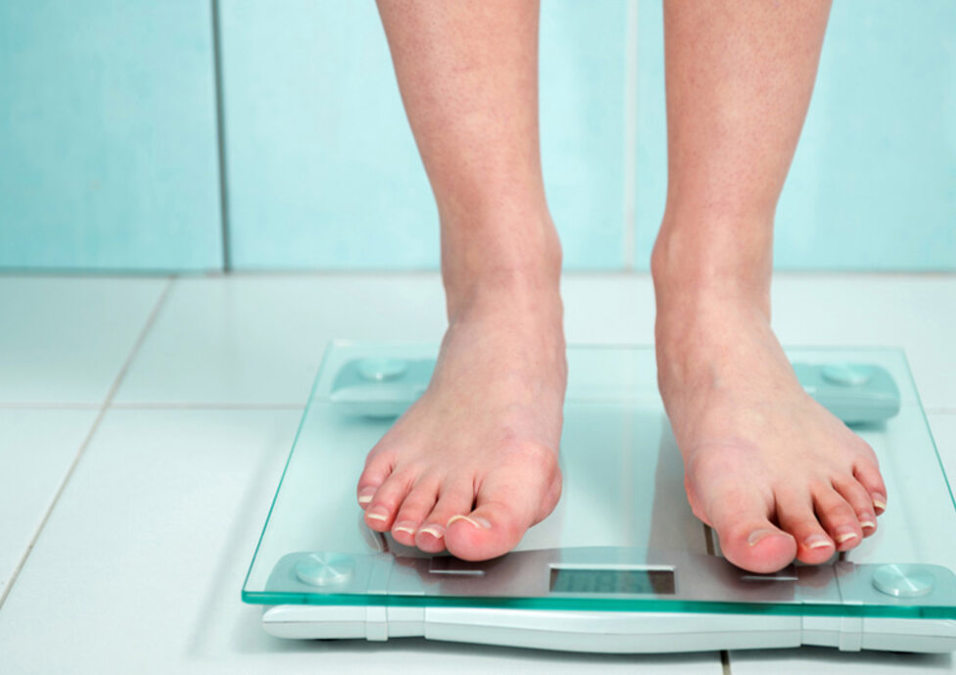Daily Weigh-Ins Hurt Fitness

SIGN UP FOR YOUR FREE DAY PASS TODAY!
Uh oh, you couldn’t resist that extra slice of cheesecake.
Guilt quickly sets in, and you wonder if it has affected your weight. Nervously, you step on the scale, and the numbers confirm your fears.
Determined to make up for it, you insist on eating only salads for the next few days. You continue to weigh yourself after every meal, hoping to avoid any weight gain.
This was the reality for Mia Thompson, a freelancer living in Dubai. She openly admits that her obsession with monitoring her weight led to overwhelming anxiety.
"I was always waiting for the scale to hit some ideal number," she shares. “I wanted to lose weight without putting in the effort of exercising.”
Mia’s story emphasizes a key point about weight monitoring. Scales can be useful tools for tracking progress, but constant weighing can bring unnecessary stress.
Most health experts agree that daily fluctuations in weight don’t accurately reflect overall health or fitness progress. It’s important to stay accountable—but not if it comes at the expense of your mental well-being.
The Mental Toll of Obsessive Weighing
Studies reveal that constantly weighing yourself can harm your emotional health.
Research published in the Journal of Behavioral Medicine found that adolescents who weigh themselves frequently are more likely to develop unhealthy weight control habits and experience psychological distress.
The researchers suggest that weight-monitoring recommendations should be cautious, especially for younger individuals.
Another study noted that adults who weigh themselves daily report higher stress levels and a greater fixation on food and exercise.
This intense focus on numbers can disconnect individuals from recognizing other health wins, such as improved sleep, higher energy levels, or increased physical strength.
While occasional weighing might not always lead to negative effects, it’s essential to strike a balance.
A meta-analysis published in the Health Psychology Review found that self-weighing isn’t automatically linked to adverse psychological outcomes.
Yet, there was a slight connection between frequent weighing and reduced self-esteem or increased stress.
Mariana Dey, a wellness life coach based in Dubai, highlights the issue from her experience. “Frequent weighing often drives people to make extreme dietary changes just to see a lower number on the scale.
Guilt after enjoying a meal can lead to spending the next week chasing unrealistic weight-loss goals,” she says.
The Scale Tells an Incomplete Story
The truth is, your weight is just one factor—and often, it doesn’t provide the full picture of your health.
Dubai-based sports nutritionist Sarah Khan explains, “The scale doesn’t account for factors like muscle gain, water retention, hormonal changes, or digestion.”
For instance, research from Obesity Reviews points out that muscle weighs more than fat by volume.
This means someone can lose significant fat and gain muscle but still notice the number on the scale increase. Such fluctuations can frustrate individuals even when they’re making meaningful progress.
Khan continues, “Weight fluctuates for many reasons, such as fluid intake, hormones, and activity levels. Being fixated on the number isn’t helpful as it rarely reflects the whole story.”
She explains that losing a pound of fat and gaining a pound of muscle signifies a meaningful body transformation, even though the scale wouldn’t show a change.
Additionally, there are other indicators of health and success that go beyond the scale. "What truly matters is how you feel," says Khan. “Do you have more energy? Are your clothes fitting better?
Are you sleeping soundly? Even metrics like blood pressure and blood sugar levels are key signs of progress that the scale doesn’t measure.”
Breaking Free from the Cycle
If you find yourself obsessively weighing in, there are healthier and more effective ways to track your progress:
- Progress Photos: Visual changes often tell a clearer and more compelling story than numbers on a scale.
- Non-Scale Metrics: Check in with yourself—monitor your energy levels, mood, and how your clothes fit.
- Set Strength Goals: Rather than focusing on weight, aim for goals like lifting heavier weights, running faster, or improving flexibility.
- Mindful Weighing: If weighing yourself keeps you accountable, try cutting back to weekly or monthly check-ins instead of daily measurements.
Final Thoughts
The scale can be a helpful tool when used mindfully, but obsessively relying on it may lead to unnecessary stress and imbalance.
Instead of chasing a specific weight, focus on your overall health and well-being.
Celebrate progress in all its forms—whether it’s improved energy, better sleep, or achieving a new fitness milestone. Recognizing victories beyond the scale can inspire lasting, healthier habits.
Source: gulfnews
The opinions shared in the GymNation blog articles are solely those of the respective authors and may not represent the perspectives of GymNation or any member of the GymNation team.
GET YOUR FREE TRIAL TODAY

















































































